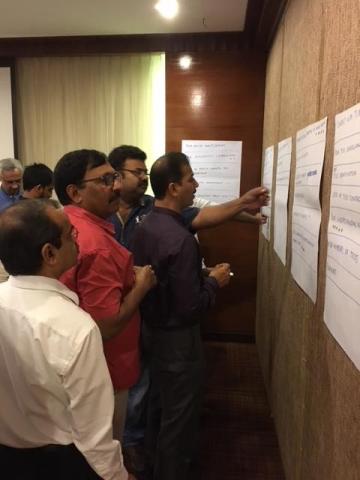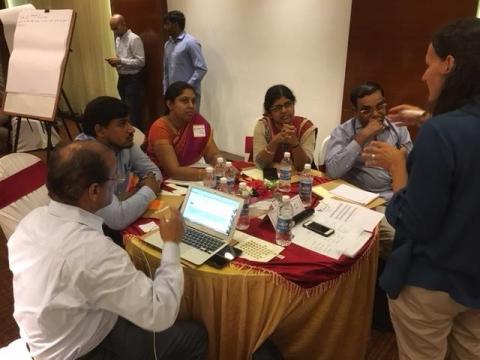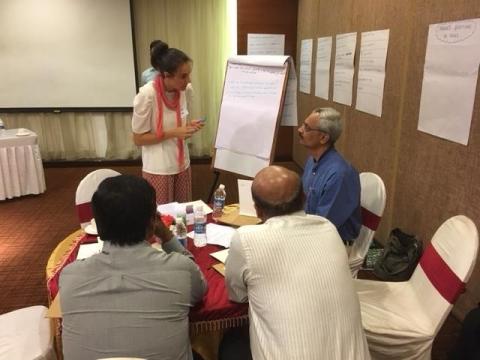Dr Bethan Purse and Dr Juliette Young provide an update from the MonkeyFeverRisk project, a collaboration between UK and Indian researchers to investigate an emerging tick-borne haemorrhagic disease in India.
Novel workshop brings together One Health network of stakeholders to combat emerging tick-borne disease in Indian forests
This week saw the first stakeholder workshop of the MonkeyFeverRisk project. A research project, funded by a Foundation Award from the Global Challenges Research Fund of the MRC, AHRC, BBSRC, ESRC and NERC, to understand how and why the deadly Kyasanur Forest Disease (KFD) is spreading in forest ecosystems in India. Our framing workshop brought together key disease managers and policy makers from State and District level in India and across animal and public health, forestry, and social welfare sectors.
The aim of this participatory workshop was to understand stakeholder needs for information and tools to combat an emerging tick-borne zoonotic disease affecting forest communities in India called Kyasanur Forest Disease. This workshop was particularly important because we are following a co-production approach that places stakeholders at the heart of the research and its outputs.
Though many models and risk maps are published and highly cited in the scientific literature, they are rarely used by disease managers on the ground. This may be because researchers tend to frame the research question according to their own knowledge, discipline and assumptions. These are often removed from the realities of day-to-day disease management.
Aligned with the global One Health Initiative, to ensure the practical application of the risk maps and guidance from our project, stakeholders were asked to identify key risk factors that make forest communities more susceptible to KFD, what are their needs for additional information or tools to support disease control strategies, and what a usable and practical decision support tool should look like. As researchers we were inspired by the generosity and active participation of so many important experts, especially while they are dealing with the public crisis caused by the heavy and early monsoon in south India.



Stakeholders at all levels stressed the need for greater advocacy to increase awareness of KFD in affected communities and for prioritisation of KFD in national policy, including improvement of diagnostic and vaccine technology and surveillance capacity. Immediately after the workshop, the project team got together to integrate their insights on risk factors into the research program and address the needs of stakeholders, including the creation of a cross-sectoral One Health network on KFD. The project team is now preparing the field campaign for October which will take a snapshot of the human and ecological risk factors across affected areas, understanding for example which activities in the forest expose people to infected ticks and establish whether monkeys or other mammal reservoirs like rodents might facilitate transmission from ticks to humans. Other researchers are refining geographical models of risk areas to include the risk factors identified by the stakeholders.
The next steps in refining the tool that is being co-produced with these stakeholders will be a knowledge integration workshop in the Spring, and a validation workshop where we will test the value of the tool for improving management of KFD. If you are a stakeholder or researcher in One Health or zoonotic disease and would like to join our One Health network or simply find out a bit more information on the project and its approach, please get in touch with us by email on beth@ceh.ac.uk , slhoti@yahoo.com , or on twitter @MonkeyFever_
Additional Information
Tackling tick borne diseases forests India
Optimising forest benefits whilst minimising impacts of emerging zoonotic diseases
